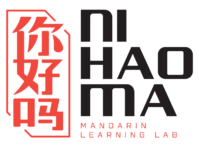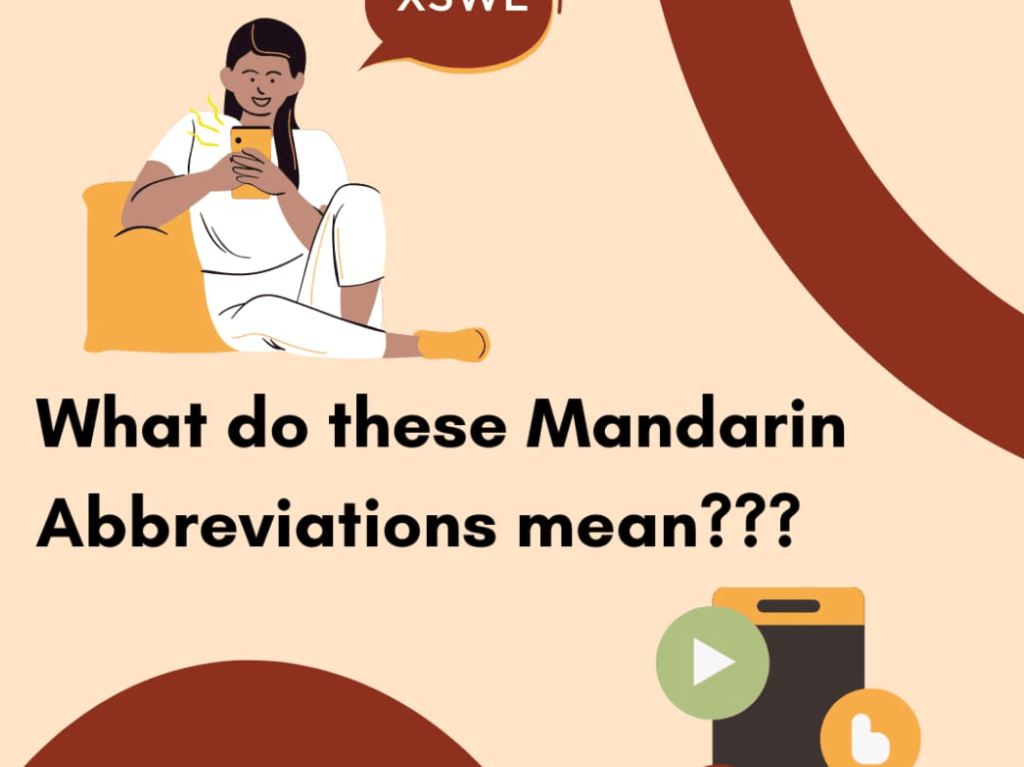In the context of increasingly deep international integration, mastering Chinese—especially specialized vocabulary—has become extremely important. The topic of politics and government agencies is not only crucial for those working in diplomacy or research but also helps us better understand daily news. In the following article, Ni Hao Ma will introduce you to key politics vocabulary in Chinese to help you feel more confident when reading news or discussing current affairs.
Politics Vocabulary in Chinese
Politics vocabulary in Chinese typically includes groups of words related to government systems, state agencies, political institutions, and political activities. Below, we will explore these words grouped by categories.
Politics Vocabulary in Chinese: Government System
The politics vocabulary in Chinese related to the government system includes terms used to name government agencies, official titles, and activities associated with a country’s administrative apparatus.
| Chinese | Pinyin | Meaning |
|---|---|---|
| 政府 | zhèngfǔ | Government |
| 政治 | zhèngzhì | Politics |
| 政权 | zhèngquán | Political power / Administration |
| 主权 | zhǔquán | Sovereignty |
| 人权 | rénquán | Human rights |
| 国家 | guójiā | Country / Nation |
| 部门 | bùmén | Department / Ministry |
| 政策 | zhèngcè | Policy |
| 共产党 | gòngchǎndǎng | Communist Party |
| 政治体制 | zhèngzhì tǐzhì | Political system |
| 多党制 | duōdǎngzhì | Multi-party system |
| 一党制 | yīdǎngzhì | One-party system |
| 国会 | guóhuì | National Congress / Parliament |
| 议会 | yìhuì | Parliament |
| 参议院 | cānyìyuàn | Senate |
| 众议院 | zhòngyìyuàn | House of Representatives |
| 官员 | guānyuán | Official |
| 议员 | yìyuán | Legislator / Member of Parliament |
| 代表 | dàibiǎo | Delegate / Representative |
| 总统 | zǒngtǒng | President |
| 副总统 | fù zǒngtǒng | Vice President |
| 国家主席 | guójiā zhǔxí | Head of State / Chairman of the Country |
| 副主席 | fù zhǔxí | Vice Chairman / Vice President |
| 总理 | zǒnglǐ | Prime Minister |
| 副总理 | fù zǒnglǐ | Deputy Prime Minister |
| 部长 | bùzhǎng | Minister |
| 副部长 | fù bùzhǎng | Deputy Minister |
| 总书记 | zǒngshūjì | General Secretary |
| 候选人 | hòuxuǎnrén | Candidate |
| 公务员 | gōngwùyuán | Civil servant |
| 单位人员 | dānwèi rényuán | Government employee |
| 政纲 | zhènggāng | Political platform |
| 政见 | zhèngjiàn | Political viewpoint |
| 党派 | dǎngpài | Political party |
| 执政党 | zhízhèngdǎng | Ruling party |
| 反对党 | fǎnduìdǎng | Opposition party |
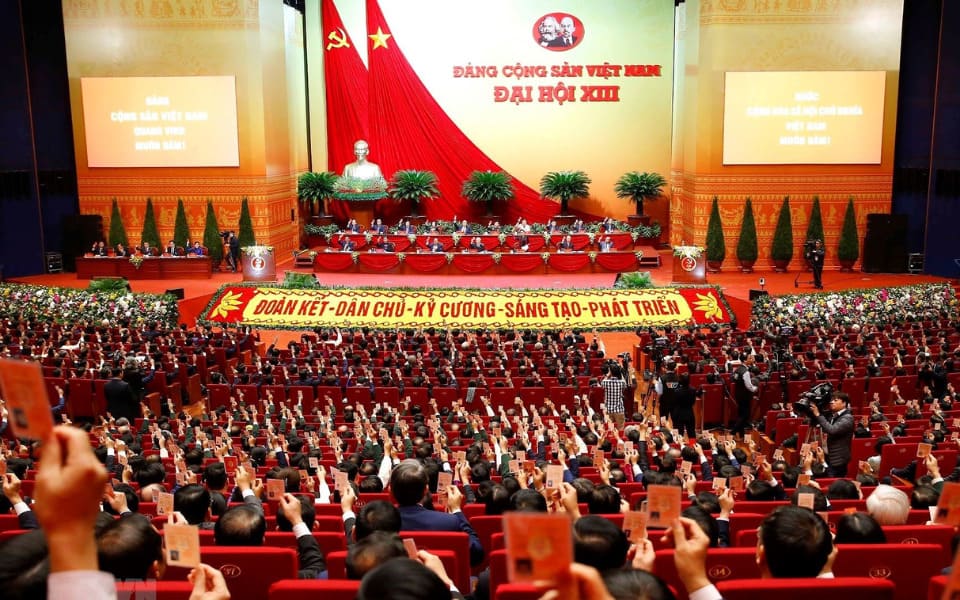
Politics Vocabulary in Chinese: State Agencies
Politics vocabulary in Chinese related to state agencies includes terms used to refer to government offices, ministries, committees, and other official institutions. Below is a detailed list of common agencies and organizations in Vietnam as examples:
| Chinese | Pinyin | Meaning |
|---|---|---|
| 国家主席办公厅 | Guójiā zhǔxí bàngōngtīng | Office of the President |
| 国会办公厅 | Guóhuì bàngōngtīng | Office of the National Assembly |
| 政府办公厅 | Zhèngfǔ bàngōngtīng | Office of the Government |
| 越南共产党中央委员会 | Yuènán gòngchǎndǎng zhōngyāng wěiyuánhuì | Central Committee of the Communist Party of Vietnam |
| 政治局 | Zhèngzhìjú | Politburo |
| 宣传部 | Xuānchuánbù | Propaganda Department |
| 书记处 | Shūjìchù | Secretariat |
| 国防部 | Guófángbù | Ministry of National Defense |
| 公安部 | Gōng’ānbù | Ministry of Public Security |
| 外交部 | Wàijiāobù | Ministry of Foreign Affairs |
| 司法部 | Sīfǎbù | Ministry of Justice |
| 计划投资部 | Jìhuà tóuzībù | Ministry of Planning and Investment |
| 财政部 | Cáizhèngbù | Ministry of Finance |
| 工贸部 | Gōngmàobù | Ministry of Industry and Trade |
| 农业与农村发展部 | Nóngyè yǔ nóngcūn fāzhǎnbù | Ministry of Agriculture and Rural Development |
| 交通运输部 | Jiāotōng yùnshūbù | Ministry of Transport |
| 建设部 | Jiànshèbù | Ministry of Construction |
| 自然资源与环境部 | Zìrán zīyuán yǔ huánjìngbù | Ministry of Natural Resources and Environment |
| 内务部 | Nèiwùbù | Ministry of Home Affairs |
| 劳动、荣军与社会事务部 | Láodòng, róngjūn yǔ shèhuì shìwùbù | Ministry of Labor, Invalids and Social Affairs |
| 信息与传媒部 | Xìnxī yǔ chuánméibù | Ministry of Information and Communications |
| 教育与培训部 | Jiàoyù yǔ péixùnbù | Ministry of Education and Training |
| 科学与技术部 | Kēxué yǔ jìshùbù | Ministry of Science and Technology |
| 文化、体育与旅游部 | Wénhuà, tǐyù yǔ lǚyóubù | Ministry of Culture, Sports and Tourism |
| 卫生部 | Wèishēngbù | Ministry of Health |
| 越南国家银行 | Yuènán guójiā yínháng | State Bank of Vietnam |
| 政府监察总署 | Zhèngfǔ jiānchá zǒngshǔ | Government Inspectorate |
| 常务委员会 | Chángwù wěiyuánhuì | Standing Committee |
| 民族委员会 | Mínzú wěiyuánhuì | Committee for Ethnic Minorities |
| 越南祖国阵线中央委员会 | Yuènán zǔguó zhènxiàn zhōngyāng wěiyuánhùi | Central Committee of the Vietnam Fatherland Front |
| 工会 | Gōnghuì | Trade Union |
| 越南胡志明共产主义青年团 | Yuènán Hú Zhìmíng gòngchǎn zhǔyì qīngniántuán | Ho Chi Minh Communist Youth Union |
| 越南总工会 | Yuènán zǒng gōnghuì | Vietnam General Confederation of Labor |
| 统计总局 | Tǒngjì zǒngjú | General Statistics Office |
| 海关总局 | Hǎiguān zǒngjú | General Department of Customs |
| 税务总局 | Shuìwù zǒngjú | General Department of Taxation |
| 越南之声广播电台 | Yuènán zhī shēng guǎngbò diàntái | Voice of Vietnam (VOV) |
| 越南电视台 | Yuènán diànshìtái | Vietnam Television (VTV) |
| 越南通讯社 | Yuènán tōngxùnshè | Vietnam News Agency (TTXVN) |
| 越南科学技术院 | Yuènán kēxué jìshùyuàn | Vietnam Academy of Science and Technology |
| 越南社会科学院 | Yuènán shèhuì kēxuéyuàn | Vietnam Academy of Social Sciences |
| 最高人民法院 | Zuìgāo Rénmín Fǎyuàn | Supreme People’s Court |
| 最高人民检察院 | Zuìgāo Rénmín Jiǎncháyuàn | Supreme People’s Procuracy |
| 大使馆 | Dàshǐguǎn | Embassy |
| 总领事馆 | Zǒng lǐngshì guǎn | Consulate General |
| 常驻代表处 | Chángzhù dàibiǎo chù | Permanent Mission (to the UN or international organizations) |
| 人民委员会 | Rénmín wěiyuánhuì | People’s Committee |
| 省委 | Shěngwěi | Provincial Party Committee |
| 市委 | Shìwěi | Municipal Party Committee |
| 计划投资厅 | Jìhuà tóuzītīng | Department of Planning and Investment |
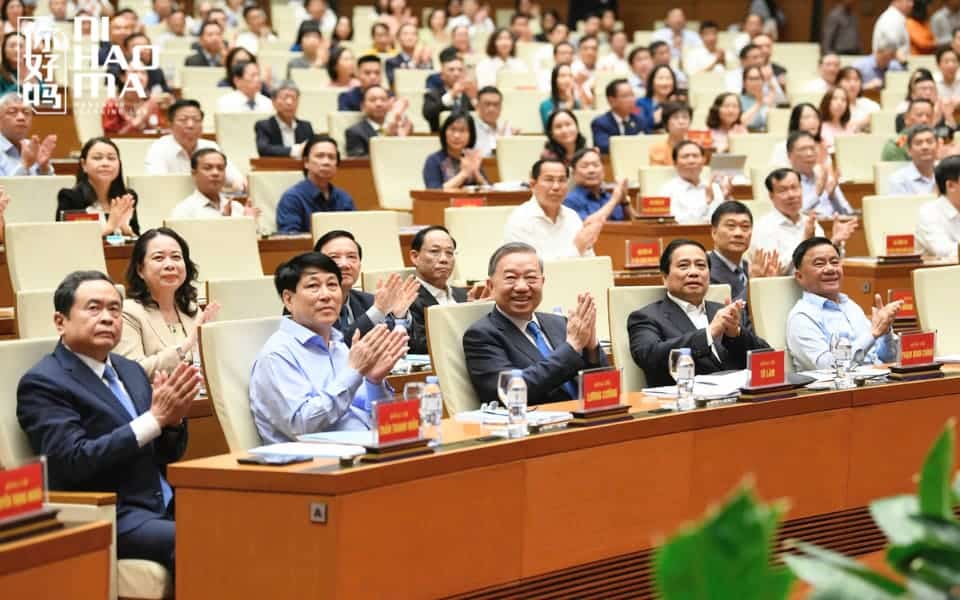
Politics Vocabulary in Chinese: Political Systems
A political system is the core foundation of a government, determining the nature, structure, and operations of a social regime. Simply put, a political system includes all the laws, rules, and mechanisms a country uses to govern itself, such as who holds power and how state agencies function.
| Chinese | Pinyin | Meaning |
|---|---|---|
| 政治体制 | zhèngzhì tǐzhì | Political system |
| 自治 | zìzhì | Autonomy |
| 联邦制 | liánbāngzhì | Federal system |
| 联邦共和国 | liánbāng hònghéguó | Federal Republic |
| 单一制 | dānyīzhì | Unitary system |
| 多党制 | duōdǎngzhì | Multi-party system |
| 临时政府 | línshí zhèngfǔ | Provisional government |
| 君主立宪制 | jūnzhǔ lìxiànzhì | Constitutional monarchy |
| 绝对君主制 | juéduì jūnzhǔzhì | Absolute monarchy |
| 共和 | gònghé | Republic |
| 民主 | mínzhǔ | Democracy |
| 专制主义 | zhuānzhì | Despotism / Autocracy |
| 独裁 | dúcái | Dictatorship |
| 神权 | shénquán | Theocracy |
| 部落体制 | bùluò tǐzhì | Tribal system |
| 封建主义 | fēngjiàn zhǔyì | Feudalism |
| 资本主义 | zīběn zhǔyì | Capitalism |
| 社会主义 | shèhuì zhǔyì | Socialism |
| 共产主义 | gòngchǎn zhǔyì | Communism |
Politics Vocabulary in Chinese: Political Activities
When learning politics vocabulary in Chinese, one of the most important categories is terms related to political activities that countries conduct daily.
| Chinese | Pinyin | Meaning |
|---|---|---|
| 政治活动 | Zhèngzhì huódòng | Political activity |
| 竞选 | Jìngxuǎn | Campaigning |
| 选举 | Xuǎnjǔ | Election |
| 投票 | Tóupiào | Voting |
| 发表演讲 | Fābiǎo yǎnjiǎng | Deliver a speech |
| 竞选演说 | Jìngxuǎn yǎnshuō | Campaign speech |
| 集会 | Jíhuì | Meeting / Assembly |
| 示威 | Shìwēi | Demonstration |
| 游行 | Yóuxíng | Parade / March |
| 罢工 | Bàgōng | Strike |
| 革命 | Gémìng | Revolution |
| 政变 | Zhèngbiàn | Coup d’état |
| 谈判 | Tánpàn | Negotiation |
| 协商 | Xiéshāng | Consultation / Discussion |
| 游说 | Yóushuì | Lobbying |
| 宣传 | Xuānchuán | Propaganda |
| 抗议 | Kàngyì | Protest |
| 改革 | Gǎigé | Reform |
| 政治运动 | Zhèngzhì yùndòng | Political movement |
| 宣布独立 | Xuānbù dúlì | Declare independence |
| 签署协定 | Qiānshǔ xiédìng | Sign an agreement |
| 制定政策 | Zhìdìng zhèngcè | Formulate policy |
| 发展 | Fāzhǎn | Development |
| 公投 | Gōngtóu | Referendum |
| 批准 | Pīzhǔn | Approve / Ratify |
| 罢免 | Bàmiǎn | Dismissal / Recall |
| 弹劾 | Tánhé | Impeachment |
| 合作 | Hézuò | Cooperation |
| 冲突 | Chōngtū | Conflict |
| 任命 | Rènmìng | Appointment |
| 干涉 | Gānshè | Intervention |
| 制裁 | Zhìcái | Sanction |
| 承认 | Chéngrèn | Recognition |
| 会谈 | Huìtán | Talks / Dialogue |
| 双边关系 | Shuāngbiān guānxì | Bilateral relations |
| 多边关系 | Duōbiān guānxì | Multilateral relations |
| 友好关系 | Yǒuhǎo guānxì | Friendly relations |
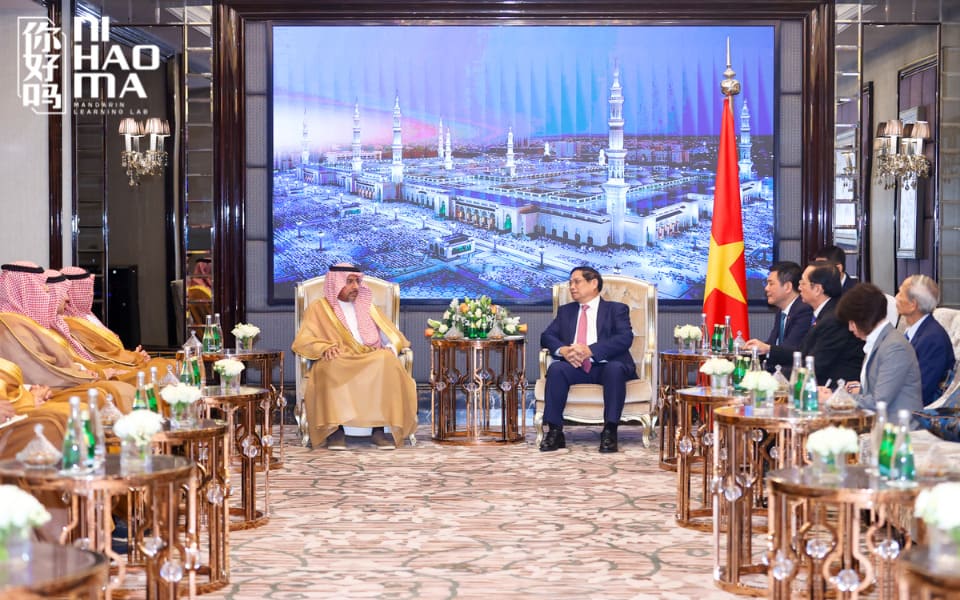
Politics Vocabulary in Chinese: Administrative Units
Administrative units are geographic areas divided within a country to facilitate governance. They are key links in a national management system, helping allocate resources, collect taxes, implement policies, and enforce laws.
| Chinese | Pinyin | Meaning |
|---|---|---|
| 首都 | shǒudū | Capital city |
| 省 | Shěng | Province |
| 自治区 | Zìzhìqū | Autonomous region |
| 直辖市 | Zhíxiáshì | Municipality under central government |
| 市 | Shì | City |
| 地级市 | Dìjí shì | Prefecture-level city |
| 县 | Xiàn | County |
| 县级市 | Xiànjí shì | County-level city |
| 区 | Qū | District |
| 乡 | Xiāng | Township |
| 市社 | Shìshè | Town-level administrative unit |
| 镇 | Zhèn | Town |
| 村 | Cūn | Village |
| 街道 | Jiēdào | Subdistrict / Ward |
| 组 | Zǔ | Neighborhood group / Community unit |
| 街 | Jiē | Street / Block |
Sample Dialogues Using Politics Vocabulary in Chinese
When learning Chinese, applying vocabulary in real-life conversations is one of the most effective ways to remember terms. In this section, Ni Hao Ma introduces several sample dialogues using politics vocabulary in Chinese, helping you master specialized terms while practicing communication in political contexts.
Dialogue 1
A: 你对最近的政治形势有什么看法?
Nǐ duì zuìjìn de zhèngzhì xíngshì yǒu shé me kànfǎ?
What is your opinion on the recent political situation?
B: 我觉得目前有点紧张。执政党面临不少挑战,尤其是经济方面的压力很大。
Wǒ juéde mùqián yǒudiǎn jǐnzhāng. Zhízhèngdǎng miànlín bùshǎo tiǎozhàn, yóuqí shì jīngjì fāngmiàn de yālì hěn dà.
I think the situation is a bit tense. The ruling party faces many challenges, especially heavy economic pressure.
A: 是啊。反对党也提出了很多批评。
Shì a. Fǎnduìdǎng yě tíchūle hěn duō pīpíng.
Yes, the opposition party has also raised many criticisms.
B: 对。民众对政府的政策也有不少意见。
Duì. Mínzhòng duì zhèngfǔ de zhèngcè yě yǒu bùshǎo yìjiàn.
Right. The public also has many opinions on government policies.
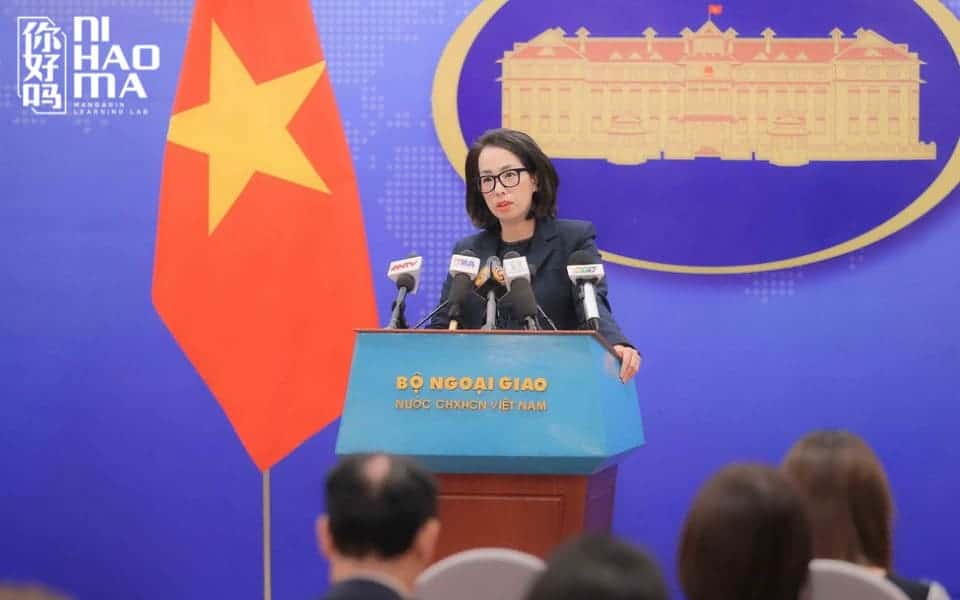
Dialogue 2
A: 你知道今年总统选举什么时候举行吗?
Nǐ zhīdào jīnnián zǒngtǒng xuǎnjǔ shénme shíhòu jǔxíng ma?
Do you know when this year’s presidential election will take place?
B: 我听说是在十一月。你会去投票吗?
Wǒ tīngshuō shì zài shíyī yuè. Nǐ huì qù tóupiào ma?
I heard it’s in November. Will you go vote?
A: 当然会,这是公民的责任。
Dāngrán huì, zhè shì gōngmín de zérèn.
Of course, it’s a citizen’s responsibility.
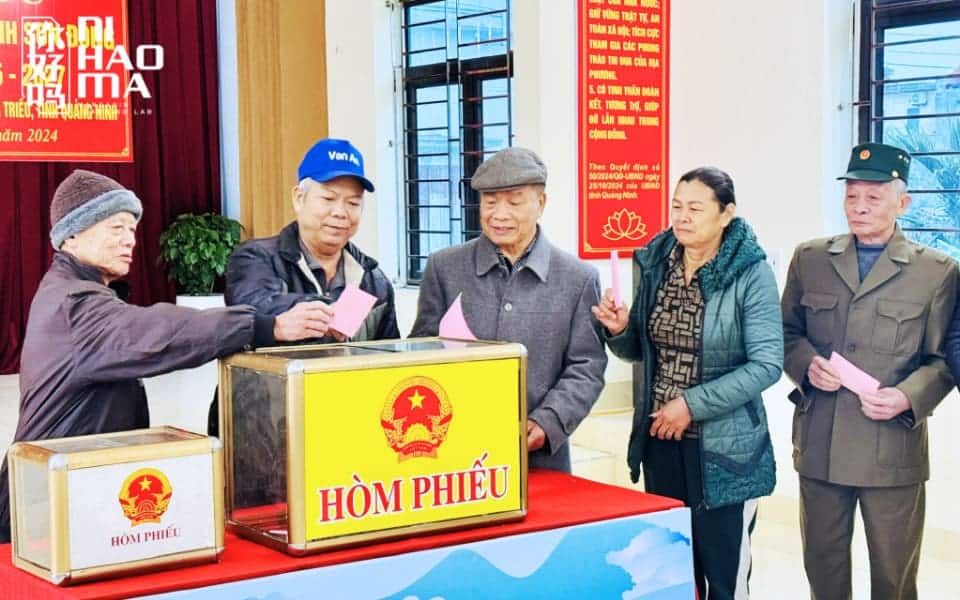
Dialogue 3
A: 最近两国的外交关系有了明显改善,你注意到了吗?
Zuìjìn liǎng guó de wàijiāo guānxi yǒule míngxiǎn gǎishàn, nǐ zhùyì dào le ma?
Recently, the diplomatic relations between the two countries have improved significantly. Did you notice?
B: 是的,双方签署了新的贸易协定。
Shì de, shuāngfāng qiānshǔle xīn de màoyì xiédìng.
Yes, both sides signed a new trade agreement.
A: 希望这能促进地区稳定与合作。
Xīwàng zhè néng cùjìn dìqū wěndìng yǔ hézuò.
Hopefully, this will promote regional stability and cooperation.
Conclusion
Mastering politics vocabulary in Chinese helps learners expand their communication skills in administration, diplomacy, and discussions about current affairs. When you can use these terms fluently, reading political news, documents, or participating in international conferences becomes much easier and more effective. We hope Ni Hao Ma has provided you with useful information, and stay tuned for more interesting content!
